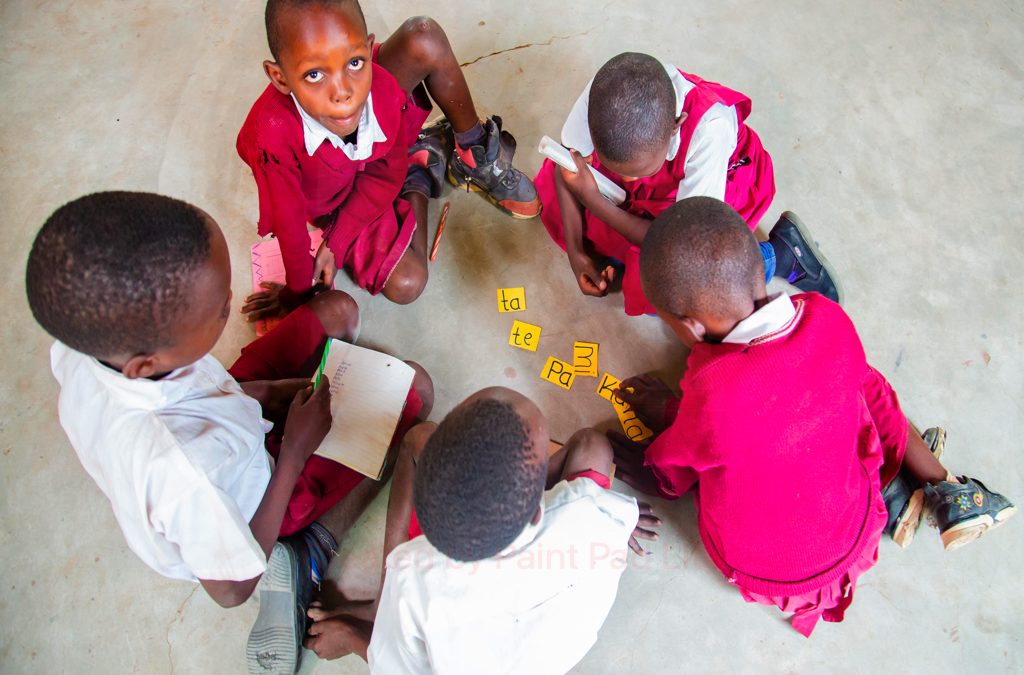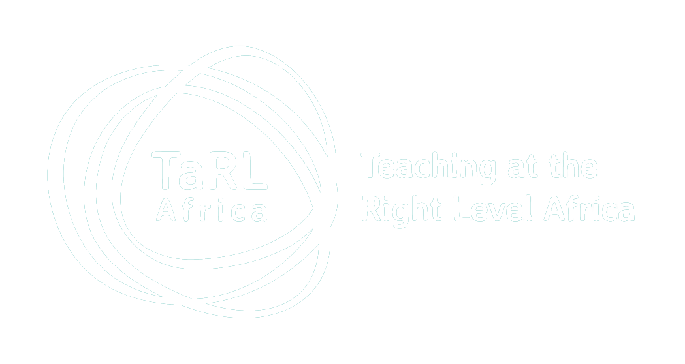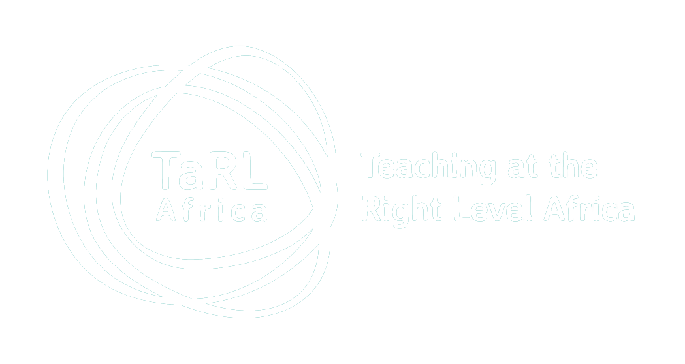
Learners practice a literacy activity in small groups during a TaRL session. Photo: TaRL Africa
Learning outcomes for children in early grades are poor despite ambitious education reforms in the country, such as the free primary education act and the introduction of the competency-based curriculum (CBC). Reports show that while the COVID-19 pandemic contributed to huge learning losses, over the years the salient issue has been that children were in school but not learning. This is the case, especially for foundational literacy and numeracy.
A learning assessment by a non-governmental organization called Uwezo in 2021 showed that 60 percent of grade four learners could not read a grade three appropriate text. In 2014 one out of every 10 Kenyan children completed primary school without having fully mastered class two skills, the report showed. These basic skills are necessary for children to understand and engage with the material they are taught in school and to acquire technical and higher-order skills as they progress in their studies. Lost learning that takes root in the earliest years of children’s lives fails to narrow in the following years.
This year marks the mid-point between the adoption and finish line of the 2030 Agenda for Sustainable Development. To meet the target for inclusive and equitable quality education and promote lifelong learning opportunities for all, the spotlight must be turned to ensure that children are learning.
Foremost, it is essential to assess every child to measure their learning level and design interventions to help the children who fall behind to catch up. The curriculum cannot be a one-size-fits-all because children are not homogenous in how they learn and understand concepts. There are various reasons why children in early grades may struggle to learn basic literacy skills such as reading, writing, and arithmetic. One factor is the language of instruction. Young children, especially from rural areas with only their home language, may struggle to understand curriculum content due to their limited English proficiency. Other factors include a lack of support from parents and caregivers who may have limited education and a lack of resources in the classroom.
Supporting vigorous innovative programs that promote tailored instruction and remedial education could help the country achieve equitable foundational skills among its young learners. One such accelerated learning program is Teaching at the Right Level (TaRL), pioneered by Pratham, an Indian NGO, and has been piloted successfully in several African countries. TaRL evaluates children using a simple assessment tool and then groups them according to learning level rather than age or grade. Each group is taught using appropriate fun/play activities and materials, starting from what the child already knows.
Also, research shows that learners benefit from using their home language in education in the early grades (ahead of a late primary transition stage) and that this leads to a more positive attitude towards school, gives learners confidence, and helps to affirm their cultural identity. The Ministry of Education, Science and Technology recommend that the predominant language spoken in a school’s catchment area should be used as the language of instruction for the first three years of primary education and that English should be taught as a subject from Primary one, this, however, has not been properly implemented.
Additionally, Kenya needs to empower its teachers and ensure they are trained and supported to lead learning, and produce and harness relevant research and innovations. Teachers are the engines at the heart of our education systems. Teachers are ready to transform education, to transform learners by equipping them with foundational skills, and to stimulate their curiosity and ability to continue learning throughout their lives.
Finally, learning spaces must be re-imagined beyond physical classrooms to accommodate digital and remote learning technologies so that education is resilient and continues during a crisis or disruption.
Experts say that lifelong education starting in the earliest years can break the cycle of poverty, improve health outcomes, and prepare people to become productive members of society. The spotlight must be turned on children’s learning to achieve this.

